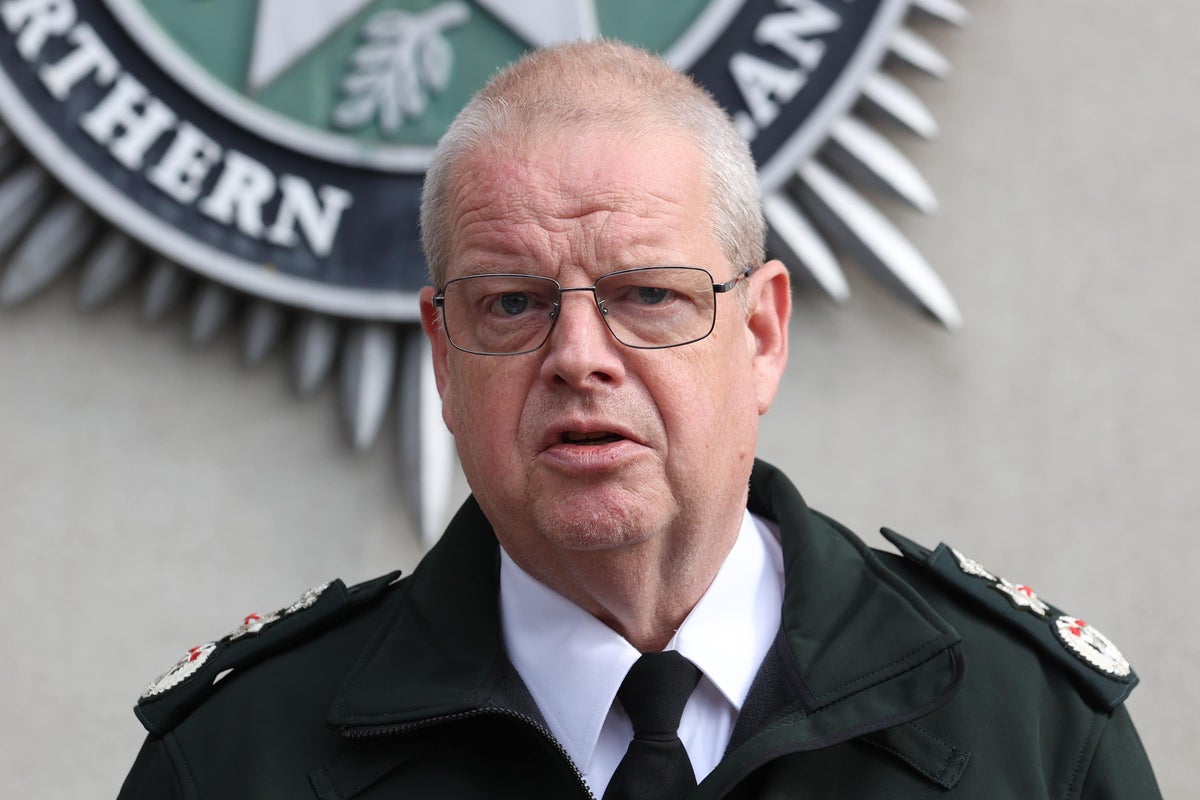
Northern Ireland’s embattled police chief faces another crunch meeting with his oversight body later following the latest controversy to rock his tenure.
Simon Byrne has faced renewed calls to quit from unionist politicians this week after a High Court judge ruled that a decision to take action against two junior officers was unlawful.
Mr Justice Scoffield said the decision was made to discipline the officers to allay any threat of Sinn Fein abandoning its support for policing in Northern Ireland.
Unionists have accused the chief constable of taking unjustified action against the officers to placate republicans.
However, Sinn Fein denied there was any threat to withdraw support for policing.
Mr Byrne will meet members of the Policing Board at a specially convened private meeting in Belfast to discuss the fallout from the judgment.
The episode has heaped further pressure on a senior police officer who was already facing questions about his future after a major data blunder at the Police Service of Northern Ireland led to personal details of officers entering the public domain and getting into the hands of dissident republicans.
On Wednesday, Sinn Fein Policing Board representative Gerry Kelly insisted that at no point did he suggest his party would withdraw support for the PSNI during discussions with senior officers about the policing of a Troubles memorial event in 2021.
The incident happened on the Ormeau Road in February 2021 during a service marking the anniversary of the February 1992 Sean Graham bookmakers attack in which five people were murdered.
“I want to set the record straight,” said Mr Kelly.
“At no stage during any calls to, or meetings with, senior PSNI officers did I suggest or insinuate that Sinn Fein would withdraw support for the rule of law or policing, or remove our members from the Policing Board.”
Trevor Clarke, the DUP’s lead representative on the Policing Board, said the statement from Sinn Fein did not answer the questions raised.
“The overarching issue is why the chief constable felt Sinn Fein’s support for policing was so tenuous that he needed to sacrifice the careers of two officers,” he said.
Mr Clarke had earlier said that the chief constable had lost the support of officers, politicians and the public and that the only option left for him was to resign.
Ulster Unionist Party leader Doug Beattie has asked for an urgent meeting with Mr Byrne, while TUV leader Jim Allister said the chief constable should resign.
SDLP Policing Board member Mark H Durkan said serious issues with policing have been exposed.
The two officers faced action in 2021 following the arrest of Mark Sykes, a survivor of a loyalist gun attack on the Sean Graham bookmakers shop in south Belfast in 1992.
The controversial incident unfolded when police challenged those attending a memorial event amid suspicions that the size of the public gathering breached coronavirus regulations.
Mr Sykes was handcuffed and arrested in chaotic exchanges captured on social media.
The incident triggered a major controversy at the time and sparked criticism of Mr Byrne.
The chief constable apologised for the PSNI’s handling of the event and it was announced that one officer was to be suspended and one repositioned.
Following a legal challenge by the Police Federation, Mr Justice Scoffield said: “Both the deputy chief constable (Mark Hamilton) and the chief constable were acutely aware of the threat of Sinn Fein withdrawing support for policing and/or withdrawing from the Policing Board if immediate action was not taken in respect of the officers’ duty status.”
In a statement in response to the court’s findings on Tuesday, Mr Byrne said the incident was “difficult for everyone”.
He added: “Those paying their respects at a memorial event, the young officers who attended on behalf of the police service, and for the public who observed the footage of an incident which happened shortly afterwards which circulated across media platforms.
“As chief constable, I accept the findings of the court.
“In particular that there was a legal error in the way in which the public interest test was applied in deciding to suspend one officer and reposition another, rendering the action unlawful.”
Mr Byrne said neither of the officers had been formally disciplined over the incident.







